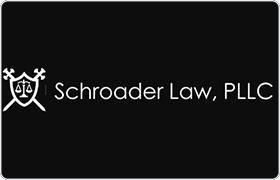Tacoma Criminal Lawyer, Washington, page 4
Sponsored Law Firm
-
 x
x

Click For More Info:
-
Schroader Law, PLLC
1105 Tacoma Ave S Tacoma, WA 98402» view mapCriminal Defense Exceptional Legal Service
Schroader Law, PLLC offers superior service from start to finish. Attorney Schroader is a knowledgeable lawyer offering comprehensive legal advice with realistic expectations.
800-916-9671
Andrew Franklin Scott
Administrative Law, Criminal, Family Law, Mass Torts
Status: In Good Standing Licensed: 38 Years
Ann Farrell Stenberg
Juvenile Law, Social Security, Criminal, Civil Rights
Status: Deceased Licensed: 32 Years
Ann-Marie Schwartz
Litigation, Federal Appellate Practice, Criminal
Status: Deceased Licensed: 28 Years
Anne Mowry Cruser
Other, Private Judging, Federal Appellate Practice, Criminal
Status: In Good Standing Licensed: 27 Years
Anthony Phillip Grasher
Criminal, Employment Discrimination
Status: In Good Standing Licensed: 18 Years
Anthony Gilles Maack
Criminal, Insurance, Personal Injury
Status: In Good Standing Licensed: 11 Years
 Dennis Schroader Tacoma, WA
Dennis Schroader Tacoma, WA Practice AreasExpertise
Practice AreasExpertise
